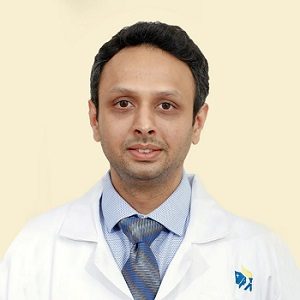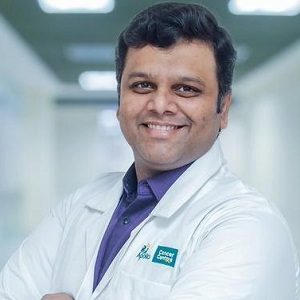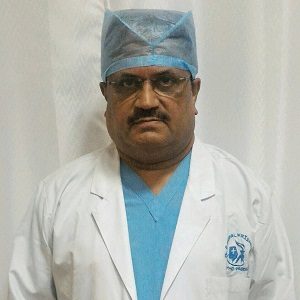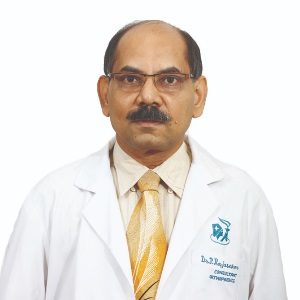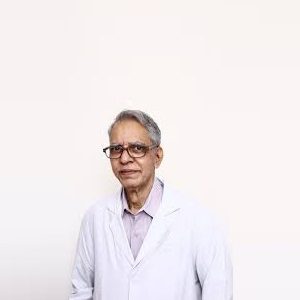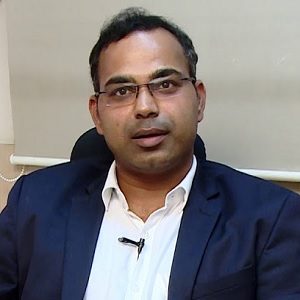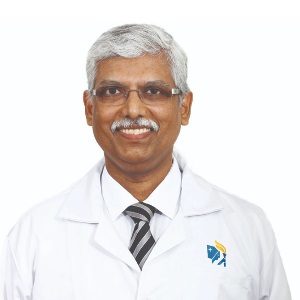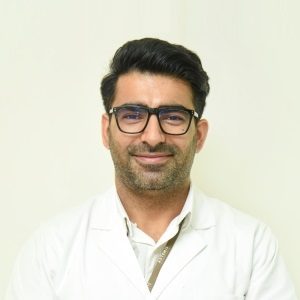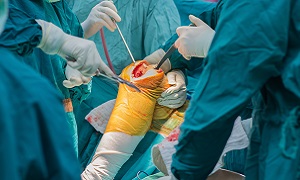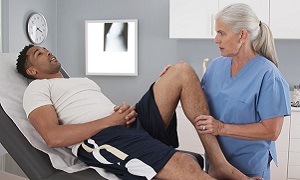Best Doctors in India for Dislocated Knee Treatment
- Orthopedic Surgeon, Chennai, India
- Over 12 years’ experience
Profile Highlights:
- Dr. Kunal Patel consults on Orthopedics related problems at the Apollo hospitals of Chennai.
- He was part of the team which set Limca’s World record of Highest Joint Replacement Surgeries in March 2015.
- Dr. Kunal Patel is well-trained in Asia’s first and only Brainlab Arthroplasty Computer Navigation Orthopedic suite and has completed several fellowships related to his field.
- Orthopedic Surgeon and Spine Surgeon, Chennai, India
- Over 12 years’ experience
Profile Highlights:
- Dr. Madhu Kiran Yarlagadda is an orthopedics – consultant specializing in Joint and spine surgery and works at the Apollo hospitals of Chennai.
- Dr. Madhu Kiran Yarlagadda’s team carried out Robotic Spine Surgery for the first time in South-East Asia and performed Endoscopic Transforaminal Spine Surgery in Chennai.
- He treats spine diseases and has the facilities and expertise to perform robotic spine surgery. Along with that, he treats patients with joint and other orthopedic issues.
- Orthopedic Surgeon, Chennai, India
- Over 16 years’ experience
Profile Highlights:
- Dr. Arun Kannan is a well-known joint replacement surgeon at the Apollo Hospitals, Chennai.
- In his 16 years of experience doing joint surgeries and treating orthopedic issues, Dr. Arun Kannan has worked in the US as well as India and has gained enough trust and recognition from his patients.
- He has been excellent in his academics as well as practice because of which he received prizes and appreciation in both.
- Orthopedic Surgeon, Chennai, India
- Over 40 years’ experience
Profile Highlights:
- An Orthopedic doctor by profile, Dr. Gopala Krishnan has around 40 years of experience in his field.
- After his initial studies in medicine in Chennai, Dr. Gopala Krishnan moved to the US to pursue M.Ch in Orthopedics in 1984.
- His experience and dedication have helped him gain recognition in the field and build trust among patients.
- Orthopedic Surgeon, Chennai, India
- Over 24 years’ experience
Profile Highlights:
- Dr. Rajasekar P is an experienced orthopedist with 24+ years of experience.
- He treats and consults patients with problems with Joints, fractures, osteoporosis, Spine injuries, etc.
- He is an MBBS and DNB qualified doctor and practices at Apollo hospitals of Chennai.
- Orthopedic Surgeon, Chennai, India
- Over 50 years’ experience
Profile Highlights:
- Dr. Uma Chandran S specializes in orthopedics and is a veteran surgeon at Apollo Hospitals of Chennai.
- He has spent more than 50 years in the field of orthopedics and is believed to be one of the best orthopedists in Chennai.
- He is also known for his expertise in bone replacement surgery, spine movement, fracture treatment, etc.
- Spine Surgeon and Orthopaedic Surgeon, Chennai, India
- Over 18 years’ experience
Profile Highlights:
- Dr. Muralidharan Venkatesan is a consultant in spine surgery from Chennai.
- He provides comprehensive cervical (neck), thoracic (upper back), and lumbosacral (lower back) conditions treatment.
- Dr. Venkatesan pursued MBBS, MRCS, and a fellowship FRCS and shifted his specialization to spinal surgery.
- Dr. Venkatesan has his papers published in several journals.
- Orthopedic Surgeon and Spine Surgeon, Chennai, India
- Over 23 years’ experience
Profile Highlights:
- Dr. Ravi Venkatesan is a spine surgery specialist from Chennai, Tamil Nadu.
- His experience in spine surgery, orthopedics, and spine deformity surgery date back nearly 23 years.
- Dr. Venkatesan has performed several surgeries and has been an active member of various orthopedics groups.
- Many organizations have recognized his service and have awarded him for his dedication.
- Orthopedic Surgeon, Gurugram, India
- Over 10 years’ experience
Profile Highlights:
- Irfan Banday is a brilliant young orthopedic surgeon with over 10 years of experience handling trauma surgeries and ortho problems.
- Irfan received Fellowship in Knee Arthroscopy and Arthroplasty and Shoulder and Upper Limb Arthroscopy, Arthroplasty & Reconstructive Surgery.
- He manages simple & complex fractures, Reconstructive Surgeries of the Knee, Shoulder, Upper limb, and complex tendon transfers.
- Orthopedic Surgeon, Gurugram, India
- Over 18 years’ experience
Profile Highlights:
- Sandeep Chauhan is one of the best orthopedic surgeons and an expert in managing complex fractures, even in children, soft tissue injuries, septic arthritis, and osteomyelitis.
- He performs fracture reconstructions; and arthroplasty procedures like surface replacements, cemented and un-cemented THR, Total Knee Replacement, musculoskeletal infections, UKA knee, hip, shoulder, & elbow replacements.
Best Hospitals in India for Dislocated Knee Treatment
DISLOCATED KNEE
The knee is a complex joint located between one’s upper and lower leg. When the three bones of the knee are out of place and are not aligned in the way they should be, it is known as a dislocated knee. Some people are born with a knee dislocation, i.e. congenital dislocation of the knee. However, most of the time, knee dislocations happen when due to a traumatic event, the bones in the knee joint are thrust out of place with great force.
If your knee is dislocated, then your thigh and shin bones might be completely or partially out of place. It is to be noted that a dislocated knee is different from a dislocated kneecap.
Although dislocated knees are rare, it is serious. Other parts of the knee might also have been damaged at the same time, and you need to see a doctor right away.
Symptoms
When the knee is dislocated, you might hear a popping sound. Some of the symptoms are:
- Lots of pain- Your knee can be in so much pain that you won’t even be able to move or straighten it.
- Your knee getting swollen and severely bruised.
- Your knee feeling unstable.
- Parts of the knee looking like they have been knocked out of place
- Being unable to perform activities that you normally do
Causes
Sometimes knee dislocation might be something that you are born with. This is termed congenital dislocation. However, knee dislocation might also happen due to the result of serious trauma such as:
Car accidents- If you ever bang your knee against a tough surface such as your dashboard, the force of the blow might be strong enough to dislocate your knee.
Hard falls- It might happen to sportsmen, especially skiers or runners if they lose control and fall on a bent or overextended knee. If you fall after stepping into a hole in the ground by mistake, it can also cause a dislocated knee.
Sports injuries- Although this is less common than car accidents, it is possible to dislocate your knee if you collide against another player, with great force.
Diagnosis
If you ever suffer from a potential knee dislocation, your doctor’s first priority is stabilizing your injured limb. Reduction or repositioning of your injured point is important in order to reduce any pressure on the skin, blood vessels, and nerves in your affected area. Sometimes reduction can occur spontaneously before you can see a healthcare provider.
Your doctor is able to assess the extent of your injury, once you are stabilized. He/she might perform multiple tests to determine the amount of ligament damage that has occurred. Typically, these tests involve determining the stability as well as the range of movement of specific parts of the knee. The exam might also include:
- Checking the blood pressure in your leg
- Checking the pulse in several places on your leg and knee
- Checking nerve conduction
- Checking your sense of touch or sensation
- Checking your skin color and temperature
Your doctor is likely going to use imaging tests such as X-ray and MRI, as these can help him/her see and diagnose and damage that has occurred to your ligaments, bones, or tendons of your knee.
Another technique known as an arteriogram might also be used for assessing blood vessel damage.
There is also a rare condition known as CKD, or congenital knee dislocation, in which the knee is dislocated from birth. The exact cause of this is unknown. Doctors are able to diagnose CKD after birth, and it generally involves X-ray imaging of the affected joint. Generally, treatment options are serial casting or surgery.
Treatment
Medications
While treating a dislocated knee, the first part is to make sure that the kneecap is in its proper position. The process of moving the kneecap back into place is known as reduction.
During this process, a healthcare provider should provide you with medication or put you under sedation so that you don’t feel any pain. They will then move your leg in a way that is going to cause the kneecap to return to its proper place.
Surgery
You might also require surgery in order to repair damaged ligaments, blood vessels, or any nerves. You might also need immediate surgery if your blood vessels are damaged.
If you undergo surgery, you might need to wear different knee braces while healing. Some can help in bending your knee, to ease any stiffness.
Physical therapy
After some time, your doctor is going to likely send you to a physical therapist, for rehabilitation. You will need to do exercises for strengthening your leg muscles around your knee and work for bringing a full range of motion back to your joint.
How long your recovery takes, depends on how serious your injury is, and if you had suffered any damage to your blood vessels and nerves. If you receive your treatment quickly, it is likely that you are going to heal well and soon. In most cases, complete recovery from a knee dislocation can take up to a year.

